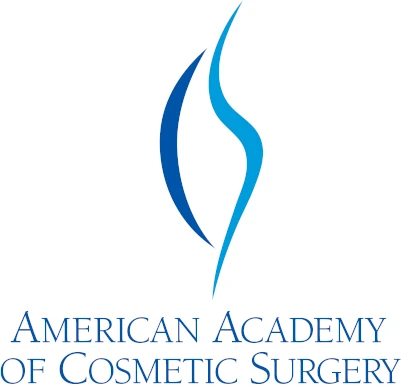Cosmetic vs. Plastic Surgery: Understanding the Difference
Are cosmetic surgery and plastic surgery the same thing?
The terms “plastic surgery” and “cosmetic surgery” are not interchangeable. Confusion about the terms has led to public misconceptions about the two specialties. Cosmetic surgery is the surgery of appearance. It is elective and focuses on the aesthetics of beauty.
Cosmetic surgery is a unique discipline of medicine focused on enhancing appearance through surgical and medical techniques. Cosmetic surgery can be performed on all areas of the head, neck and body. Because treated areas function properly but lack aesthetic appeal, cosmetic surgery is elective.
Plastic surgery is defined as a surgical specialty dedicated to reconstruction of facial and body defects due to birth disorders, trauma, burns, and disease. Plastic surgery is intended to correct dysfunctional areas of the body and is reconstructive in nature.
Why is cosmetic surgery commonly equated with plastic surgery if they are two separate specialties?
The most important thing to remember is that the terms ‘plastic surgery’ and ‘cosmetic surgery’ are not interchangeable. Confusion about the terms has led to public misconceptions about the two specialties. Cosmetic surgery is the “surgery of appearance.” It is elective and focuses on the aesthetics of beauty.
How does the education differ between a plastic surgeon and a cosmetic surgeon?
Because the procedures and outcomes of each are quite different, the training of cosmetic surgeons and plastic surgeons is also very different.
Plastic surgeons follow a similar path as many cosmetic surgeons. However, after finishing medical school they complete a residency and/or fellowship in plastic surgery, and then may become certified by the American Board of Plastic Surgery. At this point, a plastic surgeons additional training in cosmetic surgery is optional. If they choose, they may take steps to gain experience in cosmetic surgery through a fellowship training program, workshops, seminars and lectures, and then become certified by the American Board of Cosmetic Surgery after having completed the necessary requirements.
Board certification is extremely important in determining a surgeon’s qualifications. Each of the aforementioned certifying boards has very different requirements and measures a physician’s education and experience in different fields. It is important that the public as well as healthcare professionals understand these differences so patients can make informed decisions when choosing a surgeon for a specific procedure, whether it is a cosmetic or plastic surgeon. Education and patient safety are at the very core of the American Academy of Cosmetic Surgery’s mission to advance the specialty of cosmetic surgery and quality patient care.
Are cosmetic surgeons qualified to perform cosmetic surgery?
Cosmetic surgeons are dedicated to the art of cosmetic surgery. Their strong knowledge base, high level of training and practical experience make them among the most qualified physicians to perform cosmetic procedures. In fact, Botox®, laser technology and tumescent liposuction (widely regarded as the best type of liposuction) were developed by ophthalmologists and dermatologists.
Choosing a Qualified Surgeon
What does it mean to be “Board Certified”?
Board certification is one of the many yardsticks in determining a surgeon’s qualifications. It is important to ask your doctor about his or her credentials and study them carefully. Each certifying board has different requirements and measures a physician’s education and experience in different fields. Check your doctor’s board certification and professional society affiliation(s) and call the board or society to find out what the requirements are for membership.
All Fellows of the American Academy of Cosmetic Surgery are certified by the American Board of Cosmetic Surgery and/or have their initial board certification by one of the member boards of the American Board of Medical Specialties (ABMS) such as the American Boards of Dermatology, Otolaryngology, Ophthalmology, Oral and Maxillofacial Surgery and Plastic Surgery. This provides some assurance of formal training in the fundamentals of cosmetic surgery. All of these specialty boards require at least four years of residency training in plastic and/or cosmetic surgical procedures and provide a solid base for the doctor’s skills.
Many of these board-certified physicians will then go on to complete the requirements to undergo the rigorous oral and written testing and scrutiny to become board-certified by the American Board of Cosmetic Surgery, which has established a strict set of criteria to ensure experience and proficiency specifically in cosmetic surgery.
What is the American Board of Cosmetic Surgery?
The American Board of Cosmetic Surgery is the only certifying board exam devoted to examining a surgeon’s skill in cosmetic surgery of the face and body. It is an independent sub-specialty board that examines and certifies physicians in general, facial and dermatological cosmetic surgery.
Eligibility requirements include:
1. Being certified in one of several ABMS Boards (including the American Board of Plastic Surgery, American Board of Surgery, American Board of Dermatologic Surgery, or the American Board of Oral and Maxillofacial Surgery)
2. Completing an AACS-approved fellowship, or being in practice a minimum of six years and having performed at least 1000 cosmetic surgery cases
3. Passing a stringent two-day oral and written examination
4. Being of good moral character
You can learn more about the ABCS and find physicians board-certified in cosmetic surgery at www.americanboardcosmeticsurgery.org.
Where can I find out if a doctor has had malpractice suits against him/her? Where can I file a complaint against a physician?
Each state has its own Medical Board that licenses physicians and tracks complaints and disciplinary actions taken against physicians of all disciplines. Most states have online systems to quickly look up doctors by name. Contact your state’s Medical Board or Department of Health to find the correct office. A listing of State Medical Boards may be found at www.fsmb.org under “Board Directory.”
What should consumers think about when they are looking for a physician to perform a cosmetic procedure?
The American Medical Association recommends that patients choose a health care provider based on his or her training, education, experience and demonstrated practice history. Ultimately, prospective patients need to choose a physician based on the procedure they are having. They should know how often their physician performs the procedure as well as his or her training in that area. Consumers should also speak with individuals who have received patient care from the physicians they are considering and ask to see results before committing to a doctor.
Procedures & Safety
At what age do most people have cosmetic surgery?
The average age patients receive cosmetic surgery is 41. Treatments such as breast augmentation, liposuction, rhinoplasty (nose job) and dermabrasion are common among younger patients while procedures including blepharoplasty (eyelift), breast lift, facelift and Botox® are more commonly sought by older patients.
Can breast augmentation fix droopy breasts?
Breast augmentation will not lift droopy breasts. This is best addressed by having a breast lift.
Is it safe to breastfeed if you have breast implants?
According to the Mayo Clinic, breast-feeding with implants is safe. While your breast milk could absorb some of the silicone from breast implants the amount is not considered harmful to your baby. Because breast milk is the best thing you can feed your baby, the Institute of Medicine encourages women with breast implants to breast-feed if they’re able to do so.
Do breast implants increase the risk of breast cancer?
The Institute of Medicine (IOM) found evidence that breast implants do not cause breast cancer or the recurrence of breast cancer. However, it’s still essential to undergo routine screening for breast cancer — breast self-exams, mammograms and clinical breast exams — just as you would if you didn’t have breast implants.
Is liposuction an easy way to lose weight?
Your cosmetic surgeon will commonly ask you to lose as much weight as you can before performing liposuction. The results will be better if you are as healthy as possible prior to surgery.
Does fat come back after liposuction?
Fat does not come back after liposuction. At birth, the body stops producing fat cells, but they do get bigger or smaller depending on your weight. Liposuction reduces the amount of fat cells in targeted areas. Once the fat cells are removed they’re gone forever.
Does liposuction get rid of cellulite?
Because tight bands of fibrous tissue cause cellulite, extracting the fat layer that resides just under the skin may actually worsen the dimpled look. Your cosmetic surgeon will be able to discuss expected results from liposuction and whether the procedure makes sense for you. Learn more about cellulite reduction, here.
Will Botox® freeze your facial expressions?
There is a balance between the muscles of the face. If too much Botox® is injected, one can easily lose the action of muscles of expression. However, if this muscular balance is maintained, by only injecting small doses into specific muscles, one can have a natural softening of unwanted lines and wrinkles without compromising facial expressions. Patients interested in this procedure should select a physician based on his or her training, education, experience and demonstrated practice history.
Can Botox® cause droopy eyelids?
If your Botox® treatment is administered properly, the risk of suffering from droopy eyelids is lower than 2%. As with any potential side effect, the condition is temporary and should resolve itself within a few weeks.
Trends & Patient Perspectives
Are cosmetic procedures like Botox®, microdermabrasion, and liposuction becoming more popular among men?
More and more men are seeking cosmetic surgery. According to the American Academy of Cosmetic Surgery’s 2005 Procedural survey the top five most popular procedures among men are Botox, hair transplantation/restoration, laser hair removal, microdermabrasion and liposuction, in that order. Our members report that they continue to see more and more men visit their offices. And a Consumer Survey conducted by the AACS shows that 12% of men plan to have cosmetic surgery at some point in the future.
Do most men believe their appearance impacts their professional success?
According to an AACS Consumer Survey, 83 percent of men believe that personal appearance plays a role in their professional success and advancement.
Looking for Procedural Information?
Visit our procedures page to find a list of common and popular cosmetic procedures, both invasive and non-invasive. You can learn the basics about each procedure, who ideal candidates are, intended results, recovery details, and alternative options.
View Procedures
